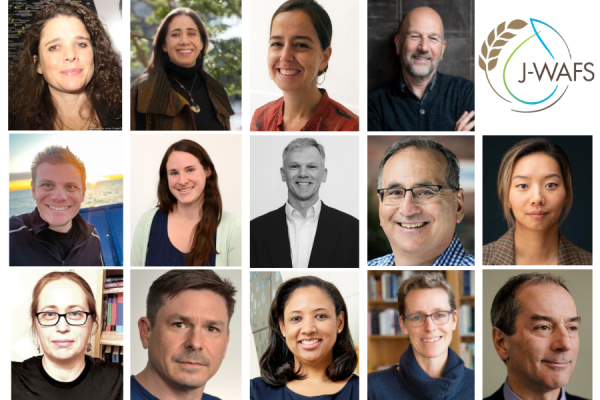Our Research Food security in Africa under a changing climate – Navigating the energy and agricultural transition to net zero
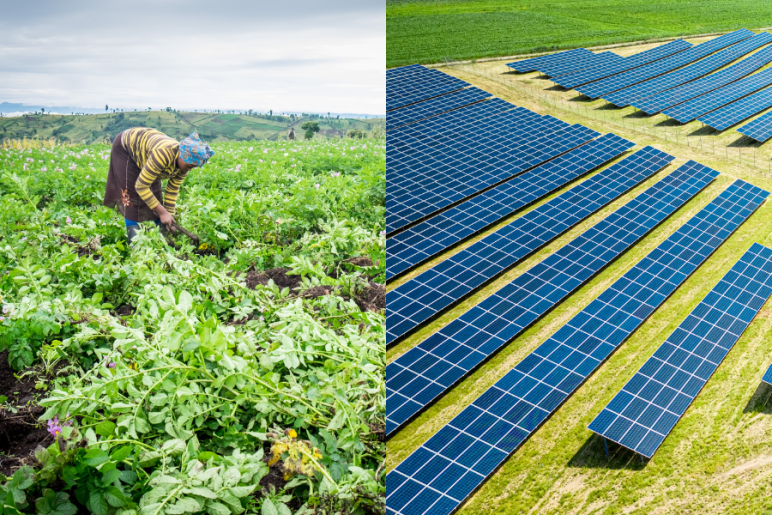
A split image showing an African woman farming in a lush field on the left and a large solar panel farm on the right.
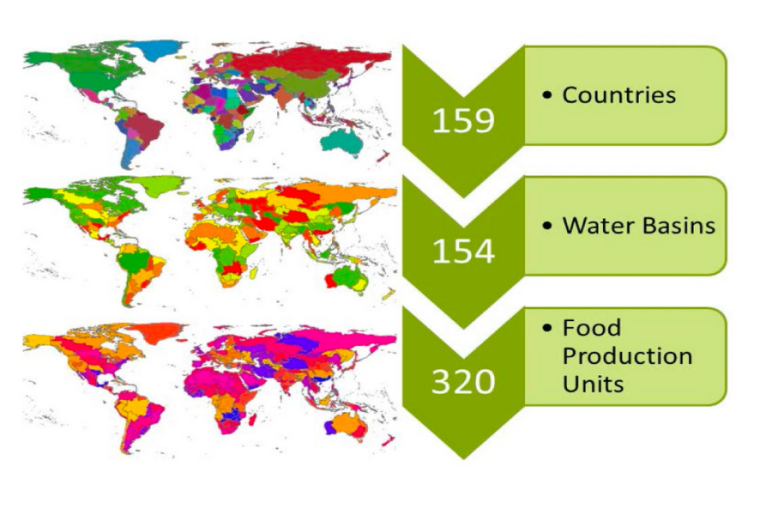
Regions in IFPRI's International Model for Policy Analysis of Agricultural Commodities and Trade (IMPACT) and Water System Resource (WRS) model. Photo credit: IFPRI
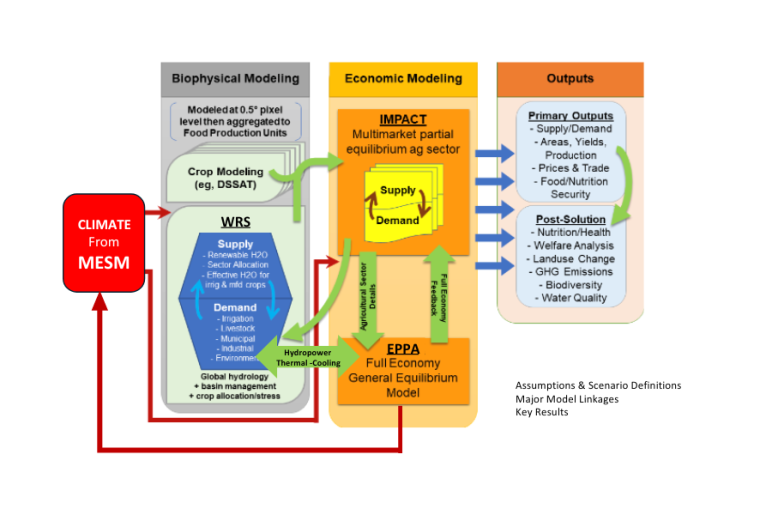
Integrated modeling framework linking the MIT Integrated Global System Model (IGSM), comprised of the Economic Projection and Policy Analysis Model (EPPA) model and the MIT Earth System Model (MESM), with IFPRI’s highly resolved water and agriculture sectoral models (the International Model for Policy Analysis of Agricultural Commodities and Trade (IMPACT) and the Water System Resource (WRS) model) to capture global, local and sectoral dynamics at the intersection of food, energy, water and land. Photo credit: Project team, adapted from IFPRI
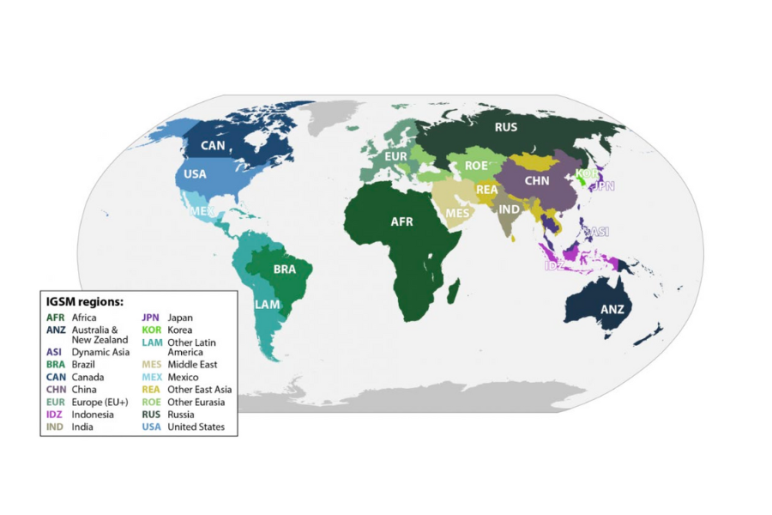
Regions in the MIT Economic Projection and Policy Analysis Model (EPPA) model. Photo credit: MIT Joint Program
Principal Investigators
Jennifer Morris
- Principal Research Scientist
- MIT Center for Sustainability Science and Strategy
- MIT Energy Initiative
Adam Schlosser
- Senior Research Scientist
- Deputy Director
- MIT Center for Sustainability Science and Strategy
Kenneth Strzepek
- Climate, Water, and Food Specialist
- MIT Center for Sustainability Science and Strategy
- J-WAFS
Challenge:
What tradeoffs does Africa face in using land and water for food vs. energy? How do global and local dynamics affect the resulting implications for food security, clean energy transitions, emissions, and economic and climate outcomes?
Research Strategy
- Build an integrated modeling framework by linking detailed sectoral models for agriculture and water with global economic and climate models
- Model the global, local, and sectoral dynamics necessary to assess food-energy-water-land interactions as well as the biophysical and the economic impacts of climate change
- Provide model-based regional and national level guidance to African policymakers for sustainable development pathways to food security and green energy under alternative global change scenarios
Project description
This project aims to build an integrated modeling framework that links highly resolved sectoral models for agriculture and water with the MIT Integrated Global System Model (IGSM), which represents global economic and climate systems. This novel global framework will capture (a) global, inter-regional and inter-sectoral dynamics, (b) highly-resolved local and sectoral dynamics of water and agricultural systems, and (c) multiple channels of climate impacts on the economy. As such, it will be well-suited to explore food-energy-water-land interactions as well as the biophysical and economic impacts of climate change.
The team will use this tool to provide valuable regional and national level guidance to African development planners and policymakers on sustainable development pathways to food security and clean energy under alternative global change scenarios. In doing so, the researchers will provide valuable insights into how to best navigate the tradeoffs of using land and water for food verses energy, and the resulting implications for food security, clean energy transitions, emissions, and economic and climate outcomes.
News
Additional Details
Impact Areas
- Water
- Food
- Climate & Sustainability
Research Themes
- Water Resources & Infrastructure
- Sustainability & Adaptation
- Soil Fertility & Crop Productivity
- Economics, Policy, & Practices
- Modeling & Data Analytics
Year Funded
- 2024
Grant Type
- Seed Grant
Status
- Ongoing



